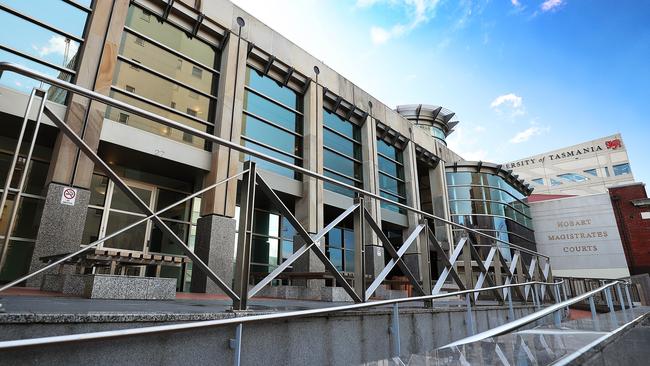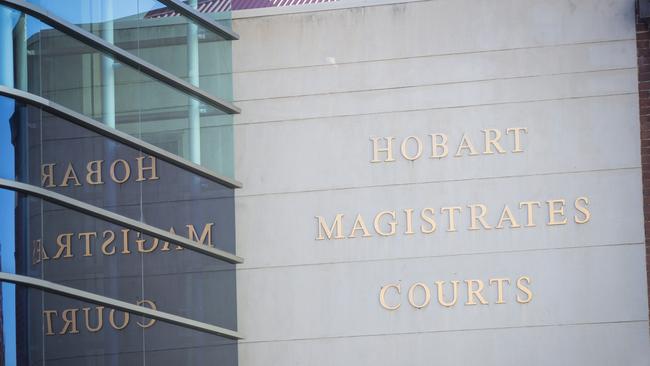Big time banker Jon Adgemis gives evidence in Jan Cameron court case
A high-flying investor has given evidence in court on Jan Cameron’s alleged interest in Bellamy’s. LATEST >>
Police & Courts
Don't miss out on the headlines from Police & Courts. Followed categories will be added to My News.
A high-flying investor who became the successor founder of the Black Prince Foundation has given evidence in court on Jan Cameron’s alleged interest in Bellamy’s.
Janet Heather Cameron, 68, appeared for the second day of her hearing before Deputy Chief Magistrate Michael Daly on Wednesday.
Ms Cameron is accused of failing to give information about substantial holdings and making a false or misleading statement, with allegations she had, previously unbeknown to ASIC, become the largest shareholder in baby formula giant Bellamy’s in 2014 by warehousing shares and transferring funds through the companies Bicheno Investments, LENGKAP, and the Black Prince Private Foundation.

It is alleged she later omitted information about her links with the company from a document lodged with ASIC in 2017. The entrepreneur has pleaded not guilty to both charges.
Influential investor and KPMG managing director of mergers and acquisitions Jon Adgemis appeared at the Hobart Magistrates Court via video link as a witness.
Mr Adgemis said Ms Cameron had informally asked his advice some years ago about the viability of Tasmanian Pure Foods Ltd – the company which later became Bellamy’s.
“She wanted to understand better the IPO offer and … whether or not she should sell her interest or sell part of her interest,” Mr Adgemis said.
The investor said he offered the advice he had been “a little concerned around the long-term business model” of the entity.

Some time later, Mr Adgemis said he discussed with Ms Cameron a parcel of Bellamy’s stock was going to be made available through an IPO.
Mr Adgemis said he understood at that time his client would invest through the Black Prince Private Foundation.
“Ms Cameron wanted to remain private and so when suggesting that there was a parcel of stock available she expressed an interest in participating in that parcel of stock but did want confidentiality at that time,” he said.
Mr Adgemis said Black Prince was a structure set up in 2012 by financial service Trustmoore to invest in technology.

The man told prosecution counsel Lincoln Crowley he had been appointed founder of the Curacao-based Black Prince.
Mr Adgemis said he had met a representative of another company LENGKAP through Ms Cameron and he understood LENGKAP provided $14m funds to Black Prince to purchase Bellamy’s shares.
“I understood that Ms Cameron was going to make moneys available, but didn’t know if it was her money or others’,” he said.
“Ms Cameron said that she could arrange the money to fund the acquisition of a stake in Bellamy’s.
Mr Daly adjourned the matter to reappear on Monday, where Mr Adgemis will be questioned further in his capacity as a witness.
Multi-millionaire’s alleged ‘share warehousing’ tactic aired in court
Jan Cameron had transferred loans through a web of offshore companies to allow her to become the major shareholder of Bellamy’s, the prosecution at her court hearing has alleged.
The hearing for Tasmanian businesswoman Jan Cameron is under way, as she denies she allegedly failed to disclose information about millions of Bellamy’s shares to the corporate watchdog.
Janet Heather Cameron, 68, appeared in the Hobart Magistrates Court for a hearing on Tuesday.
The multi-millionaire Kathmandu founder was scheduled to appear before Deputy Chief Magistrate Michael Daly on Monday but southern Tasmania’s snap lockdown delayed the already lengthy proceedings.
At a previous court appearance, Ms Cameron had pleaded not guilty to making a false or misleading statement and failing to give information about substantial holdings.

Counsel for the prosecution Lincoln Crowley appeared via video-link to explain how Ms Cameron could have allegedly been a major shareholder of baby food company Bellamy’s without publicly disclosing her position.
He said “share warehousing” was a process where people held “interest in a substantial holding in shares of a company, but they themselves don’t hold it in their name directly”.
Mr Crowley said Ms Cameron had stepped down as the director for Tasmania Pure Foods, which was later renamed Bellamy’s, “as a result of adverse reporting in the media” and fears her ongoing interest in the company could impact shareholders.
He said the prosecution alleged Ms Cameron established Bicheno Investments and Malaysian company LENGKAP “as a part of the defendant’s wish and purpose for ultimately holding the interest in the Bellamy’s shares”.

Mr Crowley said Bicheno Investments, a company which Ms Cameron owned, allegedly sold its Bellamy’s shares and loaned $23m from the sale to LENGKAP through a convertible bond arrangement, giving Bicheno some influence over LENGKAP’s decision making.
Mr Crowley said LENGKAP allegedly loaned $14m of the $23m to Black Prince Private Foundation, which was established in Curacao in the Caribbean. That money then funded the acquisition of Bellamy’s shares.
Mr Crowley said the prosecution alleged LENGKAP’s loan to Bellamy’s came with a provision requiring Black Prince to enter a shareholder agreement with the money.
“This is a means by which LENGKAP has power or control over the Black Prince,” Mr Crowley said.
“LENGKAP itself is controlled by Ms Cameron.”
Black Prince purchased $14m in Bellamy voting shares when the company was listed on the Australian Stock Exchange in August 2014.
“Black Prince was the largest shareholder of Bellamy’s by virtue of that holding,” Mr Crowley said.

Mr Crowley said an initial substantial shareholding notice was lawfully required to be lodged if a person commenced having a substantial holding in company shares.
Mr Crowley said the second charge related to a document Ms Cameron lodged with ASIC in February 2017.
She allegedly omitted her holdings in Bellamy’s from this document, despite being aware of her interest in the company and being obliged to declare her interest at an earlier date.
He said notice was required “within two business days after they become aware of the information”.

He said the prosecution must prove Ms Cameron or her associates had a relevant interest in the voting shares of Bellamy’s through Black Prince, and must prove that she failed to disclose information – including the names of her associates and the details of their holding – within two business days of her becoming aware of the details.
Mr Crowley said the prosecution alleged Ms Cameron was aware of the details as at August 5 2014 when Bellamy’s first floated their shares.
Regarding the charge of making a false or misleading statement in 2017, Mr Crowley said the prosecution must prove that Ms Cameron meant to omit, or authorised the omission, of details of her shareholding in Bellamy’s from the document lodged with ASIC in 2017.
Mr Crowley said the prosecution would call five witnesses over coming days. The hearing will continue on Wednesday.





